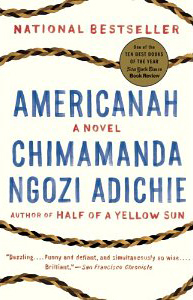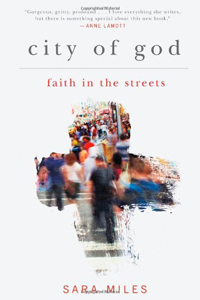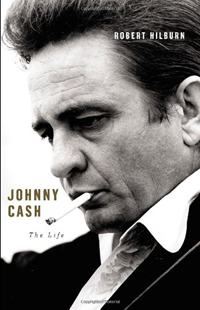The Printed Page:
Ten Favorite Books from 2014
By Dan Clendenin
For Sunday January 4, 2015
Lectionary Readings (Revised Common Lectionary, Year B)
Jeremiah 31:7–14 or Sirach 24:1–2
Psalm 147:12–20 or Wisdom of Solomon10:15–21
Ephesians 1:3–14
John 1:1–18
Happy New Year to our readers around the world!
Over the holidays I've "reviewed our reviews" from 2014. Last week I suggested ten favorite foreign films. This week, I turn to the printed page. Of course, there's no accounting for personal taste, but here are ten favorite books from the last year.
And by way of reminder, don't miss our Comprehensive Indexes of our essays, books, films, poetry, and music. After more than ten years, there are over 500 book reviews, 500 reviews of films from 85 countries, over 300 poems, and music reviews by David Werther. You can search our archives alphabetically, by title, author, subject category, and by country. And if you ever get stuck, just go to the upper left corner of any page and "search our site."
 |
Chimamanda Ngozi Adichie, Americanah: A Novel (New York: Anchor Books, 2013), 588pp.
Ifemelu is the main protagonist and narrator in Adichie's new novel about how race and place shape our personal identities. Immigration intensifies this search for the true self, for it's often a time when we reinvent ourselves, willingly or not, knowingly or not, into new versions of our former selves. This dynamic is further intensified by Adichie's story of a black Nigerian spending thirteen years in white America, and then returning to Nigeria.
Wherever she turned, Ifemelu encountered "slippery layers of meaning that eluded her" — music, food, church, school and work. Even one's bearing and demeanor revealed "that fine-grained mark that culture stamps on people." Returning to Nigeria wasn't much easier. "She was no longer sure what was new in Lagos and what was new in herself." At a meeting of Nigerian "returnees" from the west, she feared that she had become the smug cosmopolitan "Americanah" who complained about all the good things they missed. But she couldn't help now seeing Nigeria through American eyes, and some of what she saw was not pretty.
This is a powerful social critique of race, identity and belonging. Adichie's work has been translated into thirty languages.
Scott Anderson, Lawrence in Arabia; War, Deceit, Imperial Folly, and the Making of the Middle East (New York: Doubleday, 2013), 577pp.
Colonel Thomas Edward Lawrence, "Lawrence of Arabia" in popular imagination, was Britain's most legendary hero of World War I. He was also an enigmatic and controversial figure. Scott Anderson tries to separate the facts from the fiction. His book is primarily a biography of Lawrence's role in the Middle East theater of WWI. But it is also a group biography of three other major actors. The American William Yale worked for the Standard Oil Company gobbling up oil concessions while everyone else was at war. He became the primary intelligence asset for the United States in the Middle East. Curt Prüfer was a German spy. Aaron Aaronsohn was a brilliant agronomist, fluent in six languages, prominent Zionist, and leader of a Jewish spy ring.
Lawrence's story plays out on a larger canvas — the Turkish genocide of 800,000 Armenians, the Balfour Declaration supporting a Jewish state, the fall of the 600-year old Ottoman Empire, the Bolshevik Revolution that overthrew the Russian Empire, the ruthless quest for oil, and the slaughter of 16 million people. Anderson is unsparing in his prose about the bureaucratic incompetence, the imperial hubris and ignorance, the violence of war that is dehumanizing rather than heroic, the complexity of Middle East tribal cultures, and the lessons still not learned even today by westerners.
Sinan Antoon, The Corpse Washer, translated from the Arabic by the author (New Haven: Yale, 2013), 185pp.
Jawad Kazim, the protagonist and narrator in Sinan Antoon's second novel, is a fourth generation mghassilch — a corpse washer and shrouder from a poor Shi'ite family in Baghdad. It's not the life he wanted to live. In fact, he worked hard to avoid it, much to the disappointment of his father, who never understood Jawad's decision to study sculpture at the Academy of Fine Arts. But as a starving artist he needed the money, and so hoped to do his father's work only for a short time.
Antoon sets the novel in the long and dark shadow of Iraq's war with Iran, followed by the 1991 Gulf War, followed by the 2003 American invasion. Dictatorship and embargoes were bad enough, but this is the stuff of nightmares for Jawad, whose bad dreams are sprinkled throughout the novel. Reality is even worse — he tenderly washes and wraps the corpses of the abandoned, the unidentified, and the unclaimed, bodies that are mutilated, decapitated, and burned, plucked from garbage dumps and fished out of the river.
Antoon's story is a unique perspective on the chaos, the carnage, and sectarian violence unleashed by the American "liberation." Jawad himself is irreligious, but his vocation forces him to explore the most deeply human and therefore religious questions. That's difficult when you feel like a stranger who is alienated in your own country. Sinan Antoon was born and raised in Baghdad. He left after the 1991 Gulf War, and today is an associate professor at the Gallatin School of New York University.
Scott Cairns, Idiot Psalms: New Poems (Brewster, MA: Paraclete Press, 2014), 82pp.
Scott Cairns (b. 1954), the Catherine Paine Middlebush Chair in English at the University of Missouri, has won numerous awards for his dozen books of poetry, memoir, essays, and translations. This collection of 53 poems continues to explore Cairns's Eastern Orthodox faith, including his experiences at Orthodox monasteries like those on the "Holy Mountain" of Athos. Of special interest, the book gathers into one place 14 of his "Idiot Psalms" that have heretofore appeared in journals such as the Atlantic Monthly, The Paris Review, The New Republic and Poetry.
Cairns's poems exemplify the Orthodox apophatic tradition that begins by confessing our unknowing. They are a marvelous correction to the many ways that we trivialize the divine. Our Father in heaven is intimate, and sometimes even too close for comfort, but he is also infinite, and so beyond the fallen and finite knowledge of mere mortals. To what might we compare "The Vast and Inexplicable" when "full none of [our words] quite seem to satisfy?"
So, our speech about the divine is never exact, always provisional, insufficient for its task. Our hearts are dull, our presumptions are many, our minds are cluttered, our spiritual "impediments" almost "countless." Thus our "fraught perplexities accrue." And yet sometimes we have inklings of awareness that are no less real. The good God has "condescended, acquiesced / to grant what little I might bear." Even though we ricochet between futility and audacity, it is good and right to pray: "Being both far distant and most near, / grant in this obscurity a little light."
 |
Dave Eggers, The Circle (New York: Alfred A. Knopf, 2013), 491pp.
Mae Holland is Eggers' protagonist, who left her job at an old school utility company, a "gulag" that actually served a social purpose, to work at The Circle in Silicon Valley — the most important and admired internet company in the world, "the only company that really mattered at all." The Circle campus and everything about it is a Googlesque corporate utopia: "My God, it's heaven." she gushed. There's everything anyone could want for work or play, including dorms where workers sleep. The Circle is led by The Three Wise Men. Mae's best friend Annie is a senior executive and part of the Gang of 40 at the top of this pyramid.
The more you learn about the Circle the more you realize that it's a case study of a cult. Its mantra is Total Transparency by all and for all. After all, Circle is a Community. The Circle must be made Whole, Closed and Completed. And so the core beliefs of the company, appropriately in all caps: SECRETS ARE LIES, SHARING IS CARING, PRIVACY IS THEFT. Nothing should ever be deleted, which isn't a problem anyway because the powerful technologies of the Circle make that impossible.
As I read about Mae's fate in the Circle, I kept thinking about the ancient insight of the Desert Father Anthony the Great of the fourth century: "A time is coming when men will go mad, and when they see someone who is not mad, they will attack him, saying, 'You are mad; you are not like us.'" At least we have a sure guide with Dave Eggers.
Robert Hilburn, Johnny Cash: The Life (New York: Little, Brown and Company, 2013), 679pp.
Is there any need for another book about Johnny Cash? Robert Hilburn, the music editor of the LA Times for thirty-five years, put this question to Lou Robins, who managed Cash for twenty-five years. When asked how much of the Johnny Cash story had been told, Robins replied, "only about twenty percent."
Cash himself wanted his full story to be told, and admitted that his two autobiographies failed in that regard. Hilburn captures the many contradictions in Cash, beginning with his childhood picking cotton in rural Arkansas, to his super stardom as a cultural icon. He is unsparing in his depictions of Cash's drug addictions, womanizing, no-shows at numerous concerts and recording sessions, arrests, and the havoc and heartbreak that he caused his family. He also does an excellent job of depicting the many challenges that an artist must negotiate — balancing artistic integrity and commercial viability; remaining creative; conflicting advice from corporate executives, producers, managers, friends, and family; physical and mental exhaustion from a grueling life style; all the people who want a part of you; and always wondering who you can trust.
Hilburn returns time and again to the bass line of Cash's life — his unapologetic Christian faith, which irritated so many people. How could someone so profligate be so pious, people asked? According to Hilburn, Cash's faith was always the genuine article and never a commercial ploy. He read the Bible daily, made a recording of the entire New Testament, took an online study course, and appeared in three dozen Billy Graham crusades. Near the end of his life, Cash cut two songs that punctuated this point. There's Hurt, which some have hailed as the best music video ever, and has had 60 million online views. Then there's When the Man Comes Around, which Hilburn calls "the ultimate statement he was seeking."
Jaron Lanier, You Are Not a Gadget: A Manifesto (New York: Knopf, 2010), 211pp.
Jaron Lanier once described himself as a "weird outsider." He was born in New York City, but grew up in rural New Mexico. He entered college at age thirteen but never finished a degree. His waist-length dreadlocks, ample girth, and high-pitched voice give him a guru demeanor. He's an artist, musician and composer who has a world class collection of rare instruments. In 2010 Time Magazine named him one of the 100 most influential people in the world.
Back in the 1980s he was one of the inventors of virtual reality, and "one of the merry band of idealists." In this manifesto, though, he explains how his early "sweet faith" in the internet revolution has turned sour, and why he is mostly a "humanist softie." His target is what he calls the new religion of "cybernetic totalism."
Lanier contrasts "the lifeless world of pure information" with the rich mystery of being human. He defends human intelligence, judgment, and artistic creativity against the pseudo-wisdom of computer algorithms, search engines, and aggregators. Information technology, he says, is necessarily a form of social engineering, and the results have been horrible. His book contains dozens of examples, but they are "really just different aspects of a singular, big mistake. The deep meaning of personhood is being reduced by illusions of bits."
Facebook has given us fake friends. Google gives us free stuff, but by linking search with advertisement the user is really the used who has become the product. YouTube is little more than a platform for "juvenilia." Gadget fetishism is everywhere. These are spiritual failures that degrade us, and they lead to all sorts of bad behavior. A very few people have made millions on the internet, but for the vast majority Lanier says it's been a "disaster." In sum, "cybernetic totalism has been bad for spirituality, morality, and business, resulting in a creeping degradation of our own qualities as human beings."
 |
Sara Miles, City of God; Faith in the Streets (New York: Jericho Books, 2014), 205pp.
Fifteen years ago, Sara Miles walked into Saint Gregory's Episcopal Church in San Francisco "without premeditation," partook of the eucharist, and experienced a radical conversion. Her newest book describes Miles' subsequent transformation from a "respectable church goer" to a "lunatic evangelist" when in 2010 she joined a small group of people who took the Ash Wednesday imposition of ashes into the streets of her San Francisco neighborhood. She "wanted to get beyond the tastefully enclosed museum of religious life." So, they hit the streets of this most secular of cities. They knelt in McDonalds, at bus stops, and on the sidewalks in their black cassocks to pray and impose ashes. Yes, she felt "self-conscious, fraudulent, awkward, [and] exposed." But guess what? People loved it. Why were people so eager for ashes and so effusive with gratitude? Ash Wednesday, it turns out, is "the most honest of days" when the church reminds you of what no one else in society will say — that from dust you came and to dust you will return. We admit that we've made a mess. In other words, "the truth is a blessing."
Ari Shavit, My Promised Land; The Triumph and Tragedy of Israel (New York: Spiegel and Grau, 2013), 445pp.
There's no other nation like Israel, writes Ari Shavit. Two themes in particular define this deeply personal narrative — occupation and intimidation. "In the twenty-first century there is no other nation that is occupying another people as we do, and there is no other nation that is intimidated as we are." Israel has always lived with existential fear as a "profoundly vulnerable" island of 6 million Jews in a sea of 1.5 billion Muslims. Israel was also founded by the violent expulsion and subjugation of 700,000 Palestinians, and so it also lives with a legacy of moral tragedy.
Shavit is a leading Israeli journalist, a columnist for Haaretz (Israel's leading liberal newspaper), a commentator on Israeli public television, and a self-described "peacenik." But his narrative never takes the easy way out of partisan ideology. Israel's story is full of ambiguity and "core contradictions." He never resolves these contradictions and complexities — moral and political, internal and external. And thus the triumph and tragedy of Israel. Leon Wieseltier, the literary editor of The New Republic, calls Shavit's work "the least tendentious book about Israel I have ever read."
Brad Tyer, Opportunity, Montana: Big Copper, Bad Water, and The Burial of an American Landscape (Boston: Beacon Press, 2013), 232pp.
As a journalist, Brad Tyer investigated one of Montana's most glaring contradictions. In addition to its "scenic superlatives," Montana is also home to one of the country's saddest environmental debacles. The story centers around the Clark Fork river, the biggest river in the state, which was dammed in 1908 and consequently became the dump site for a hundred years of industrial copper mining waste. These toxins poisoned the land, the water, the air, the wildlife, and the people, and in particular the tiny town called Opportunity and its population of 300–500 people.
There are 17 Superfund sites in Montana; by 1983 the EPA had designated the Clark Fork as the biggest and baddest. In the ensuing decades, and after hundreds of millions of dollars, the dam was removed and the river was "rebuilt." One question for any cleanup, though, is where to haul all the toxic waste that you excavate from the contaminated site. Opportunity was the destination for 3–4 million cubic yards of mining sludge, courtesy of the Anaconda Copper Company's work there from 1910 to 1972. As Tyer writes, "The copper that wired America had a price, and Opportunity paid it." It paid twice — once with the original contamination, then as the destination for the larger area's cleanup waste.
Tyer's book is part memoir and part environmental elegy. It's a carefully researched case study with no easy answers. "Environmental justice," he writes, "is an ethical inquiry into the equitable distribution of burdens — things like four-thousand-acre plots of toxic waste — resulting from endeavors that produce waste, which is to say industrial economies." Anaconda and ARCO made their millions if not billions. Politicians preened. The lawyers lawyered. The government was feckless. The world got its copper. Environmental experts and groups haggled. The citizens complained. And in the end, Opportunity paid for it all with an environmental death sentence.





